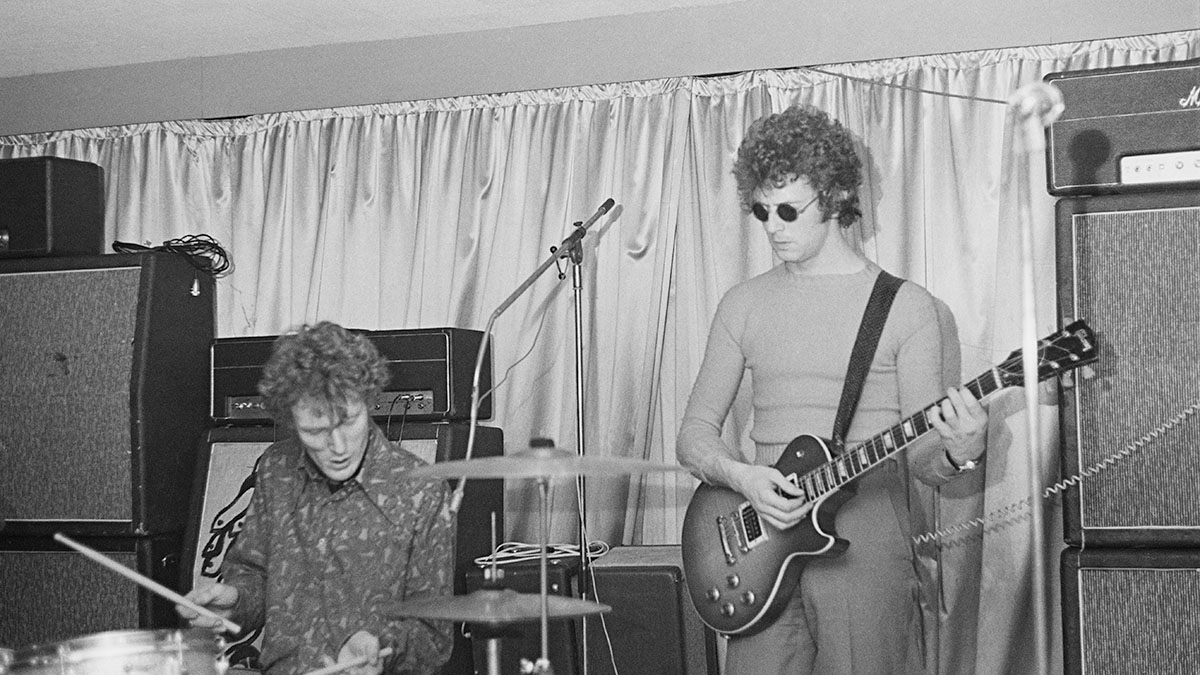Dig Through Your Musical Roots and Hear What They Say About You
All the latest guitar news, interviews, lessons, reviews, deals and more, direct to your inbox!
You are now subscribed
Your newsletter sign-up was successful

This is my first blog for Guitar World, and I thought we could kill two birds with one stone if we focused on recalling our earliest musical influences. This way, I can give you a feeling of where I’m coming from and will encourage you to dig into your own early musical influences and possibly have a clearer idea of where your musical voice was first formed.
First impressions are very powerful and are deeply etched within our subconscious. These early imprints are worth retracing because you can have a wide angle/evolutionary perspective of your tastes and approaches in exploring and composing for the guitar.
I love the mechanics of the guitar. The directness of being able to manipulate the strings with my hands. As my collection of guitars expands, it's like a painter seeking new colors for his palette.
Some sounds can only come from a nylon string, others from that perfectly beat-up acoustic guitar from my childhood. Then there’s active vs. passive pickups, and on and on ... I try to give each piece a signature sound that’s beyond the techniques I’ve cultivated so that something beyond the guitar can appear. After all, no one remembers great technicians, only great musicians!
My earliest musical memories are of my father playing piano underneath my bedroom every morning from the time I was very young up until I left to study at Berklee College of Music. He played Gershwin, Bach, Beethoven, Granados, Debussy and Dave Brubeck.
I hadn’t really thought about how formative it was to be a sleeping child with a live pianist playing underneath my bedroom every morning for years. I see now how passing from dreaming to waking with some of the best compositions in the world as my alarm clock planted seeds in my subconscious.
Another recovered memory was how every year my parents would take a two-day road trip to visit family in the deep South. When I was 5, "Star Wars" had come out for the first time, and I insisted that we listen to the soundtrack [on eight track!] all the way there and back.
All the latest guitar news, interviews, lessons, reviews, deals and more, direct to your inbox!
There was something mesmerizing about John Williams’ film score and incredible orchestration. I could see the scenes in my mind when the characters' themes came up, and this gradually spread to other film scores being cycled again and again on the car stereo.
Now when I look at my approach to composing a new piece for guitar, I’m thinking how I can make the guitar sound totally unlike a guitar. Use of volume pedals to fade in sheets of sounds like a string section, ebows on acoustic guitar with reverb to make a voice, shaking notes into existence with the fretting hand to evoke a sense of tension, not to mention the non-ordinary chords available in alternate tunings. All of these tools I’ve been attracted to I see now as trying to become the conductor at the helm of a powerful and sensitive orchestra.
Your history of influences is unique, like your fingerprints. Your influences are also right under your nose and dictate your actions more than your conscious mind can fathom. They are your musical roots. Take some time to think about them and be open to what they have to communicate!
Michael Hewett is a composer, producer, guitarist and recording artist who has released four full-length albums and numerous singles. He played lead guitar in the hit Broadway musical “Wicked” (2004 to 2009), is a video instructor and blogger at Guitar World magazine and tours
internationally with his own project. Preview his catalog of music on iTunes.
